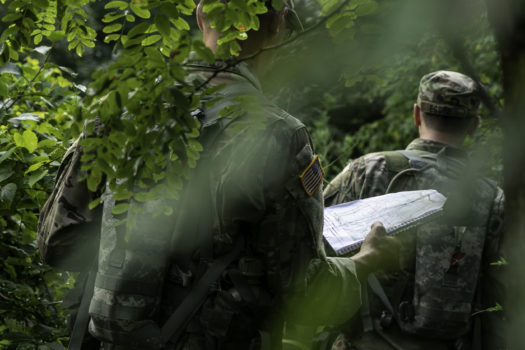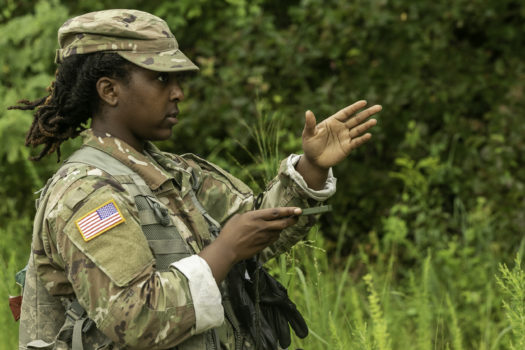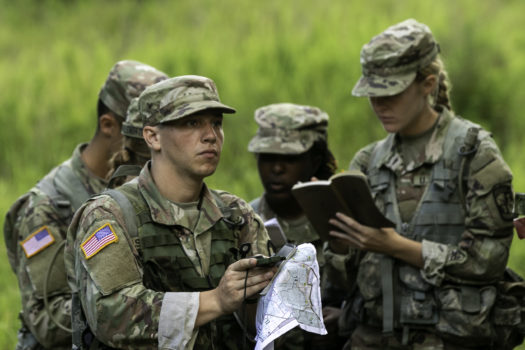FORT KNOX, Ky., – Cadets from 3rd Regiment, Basic Camp, completed their daytime land navigation exercise on Fort Knox, Ky., July 30, 2023.
Land navigation acts as a tool to teach Cadets to maneuver through various terrains while locating the intended checkpoints.

“Land navigation is the practice of finding where you’re going from your current location,” said Cadet Robert Esgro, Penn State. “We don’t know where we’re going, so every step is a step into the unknown.”
This exercise exists so that Cadets can develop their planning skills as well as learn to think more critically about the situations they are placed in.
“It’s intended to teach basic skills like map reading and how to use a compass,” said Cadet Grace Charlesworth, University of Nebraska, Lincoln. “We learned all of our basics yesterday and today we’re getting the chance to apply those lessons.”
With limited supplies and a short time limit, Cadets need to be able to work quickly.
“All we’re given is a map, a protractor and a compass,” said Cadet Zariel Jordan, University of South Alabama. “Then we have to go out and plot our points.”

This experience allows Cadets with less land navigation experience to work alongside those with more confidence to set them up for success later on.
“We really need this as we head out into tactical missions,” Jordan said. “This will really help us when we go out to our field training exercises in the upcoming weeks.”
Unlike Advanced Camp, Basic Camp Cadets perform their land navigation while part of a squad. This adjusts the various challenges required to succeed in land navigation.
“With 11 people working together, it’s a lot of voices and opinions so it’s important that we work together as a team to find our points,” Charlesworth said. “A lot of people have different experiences and ideas when it comes to properly completing the objective, so we’re all learning a lot from each other.”
When there are more voices present, it’s considerably more difficult for Cadets to locate their point.
“It was difficult to make sure everyone was getting the information they needed to know,” Jordan said. “I thought we’d lost communication.”
With roles changing between locating the various points, each new step was a different challenge of its own.

“The ability to be able to switch between being a leader and a follower is especially important in these group settings,” Esgro said. “If you’re a natural leader, when it’s your inclination to step up and ask the important questions, that’s not necessarily what this situation calls for when you’re in a team like this.”
At the end, this squad was able to successfully locate all four of their provided points with plenty of time to spare.
“I’m very proud of our squad. We’ve spent the last two weeks growing as a team, getting closer together, learning everyone’s strengths and weaknesses and how we can support each other in the best way possible,” Esgro said. “As long as we stay together through this training, we can accomplish things we didn’t think were possible for ourselves.”




